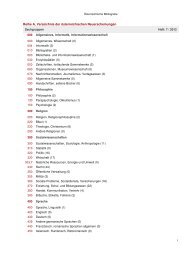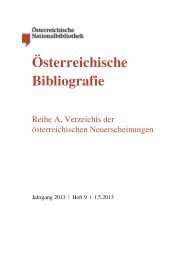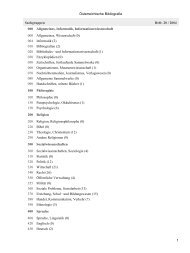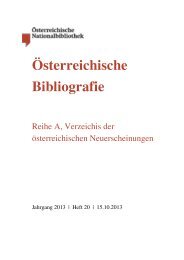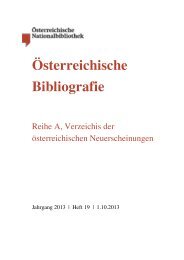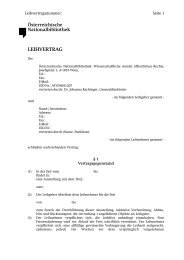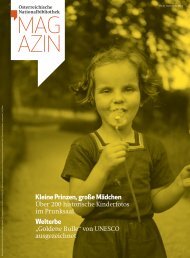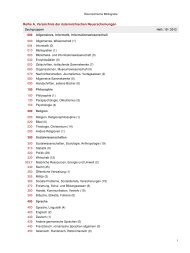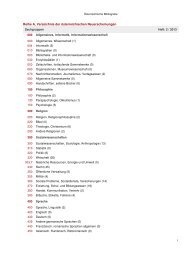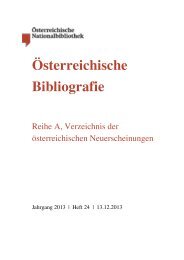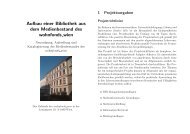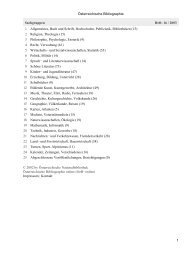Paper Conservation: Decisions & Compromises
Paper Conservation: Decisions & Compromises
Paper Conservation: Decisions & Compromises
Create successful ePaper yourself
Turn your PDF publications into a flip-book with our unique Google optimized e-Paper software.
Acknowledgements<br />
The authors are grateful to The National<br />
Archives (UK), English Heritage, the<br />
Library of Congress, the Capitol Visitor<br />
Centre and the Wellcome Library for<br />
hosting the questionnaire study and the<br />
fitness for purpose workshops. Collections<br />
Demography is a project funded by the<br />
AHRC/ESRC Science and Heritage<br />
Programme (2010-2013).<br />
Corresponding author<br />
Matija Strlic<br />
UCL Centre for Sustainable Heritage<br />
The Bartlett School of Graduate Studies<br />
14 Upper Woburn Place<br />
London WC1H 0NN<br />
m.strlic@ucl.ac.uk<br />
Authors<br />
Catherine Dillon, Centre for Sustainable<br />
Heritage, The Bartlett School of Graduate<br />
Studies, University College London, UK<br />
Nancy Bell, The National Archives, Kew,<br />
Richmond, Surrey, UK<br />
Peter Brimblecombe c , University of East<br />
Anglia, Norwich, UK<br />
Kalliopi Fouseki, Centre for Sustainable<br />
Heritage, The Bartlett School of Graduate<br />
Studies, University College London, UK<br />
Jinghao Xue, Department of Statistical<br />
Science, University College London, UK<br />
William Lindsay, The National Archives,<br />
Kew, Richmond, Surrey, UK<br />
Eva Menart, Centre for Sustainable<br />
Heritage, The Bartlett School of Graduate<br />
Studies, University College London, UK<br />
Carlota Grossi, University of East Anglia,<br />
Norwich, UK<br />
Kostas Ntanos, The National Archives,<br />
Kew, Richmond, Surrey, UK<br />
Gerrit De Bruin, Nationaal Archief, The<br />
Hague, The Netherlands<br />
David Thickett, English Heritage, London,<br />
UK<br />
Fenella France, Library of Congress,<br />
Washington DC, USA<br />
Table 1: Factor structure of value statements from the VALUE questionnaire<br />
Factor Name<br />
Future Value<br />
Materials & Sensory<br />
Experience<br />
Public Value &<br />
Evidence<br />
Personal Meaning &<br />
Identity<br />
Understanding the<br />
Present<br />
Discovery & Engagement<br />
Content & Learning<br />
Connection to the<br />
Past<br />
Rarity<br />
Description<br />
Statements in this factor relate to the potential future value of documents, their significance to<br />
society and value to others, altruistic feelings about collections and the survival of documents.<br />
Statements relate to users’ sensory experience of documents (mainly visual) and refer to such<br />
things as style, design and materials.<br />
Statements in this factor were based on a set of statements found on the Public Service Quality<br />
Group’s biannual survey of UK archives [8]. They were found to cluster together in this factor. Statements<br />
refer to some of the core roles of government archives in supporting business, administration<br />
and the law.<br />
Statements in this factor relate to the way in which original documents may be used in archives<br />
and libraries to build understanding of family, community and personal identity, for example by<br />
gaining insights into one’s personal origins or feeling more connected to other people in the present<br />
day.<br />
Statements refer to the use of documents to help understand events in the present day and to link<br />
the past to the present.<br />
Statements in this factor refer to the way in which using or viewing original documents can elicit<br />
surprise, feed curiosity and stimulate the senses.<br />
Statements in this factor refer to the information content (i.e. text and images) of documents, what<br />
can be learnt from them and their role in enabling understanding of and insight into the past.<br />
Statements in this factor reflect an interest in what mattered to people in the past, how documents<br />
can help the user or viewer feel connected to people in the past, and how documents are<br />
part of history.<br />
A small factor with statements relating to the uniqueness of the document and whether it could<br />
be replaced if damaged.<br />
ICOM-CC Graphic Documents Working Group Interim Meeting | Vienna 17 – 19 April 2013<br />
41



